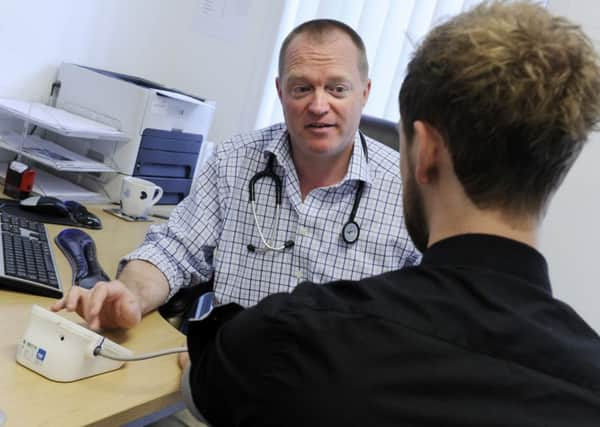Fast-track cancer testing urged


For the first time the National Institute for Health and Care Excellence (Nice) is encouraging GPs to take a “symptoms-based approach” of matching a symptom such as stomach pain to possible cancers.
Patients are also being encouraged to tell their family doctor if they believe they have a cancer symptom.
Advertisement
Hide AdAdvertisement
Hide AdThe guidelines recommend GPs directly order certain cancer tests for a patient with a possible symptom at their surgery or local clinic as standard, rather than being referred to a specialist first.
Professor Mark Baker, clinical practice director at Nice, said it means more patients could be offered faster testing to spot cancer at an early and curable stage.
He said: “(The guidelines) adopt an entirely new approach focusing not on a diagnosis of a particular type of cancer, as all previous referral guidelines have, but on the signs and symptoms patients present to GPs with.
“It therefore makes it a lot easier for GPs to know how to deal with the patient whose symptoms may often be vague and for whom cancer may not be the most obvious diagnosis but who have early and curable disease.
Advertisement
Hide AdAdvertisement
Hide Ad“These are the people we need to get into the diagnosis pathway as quickly as possible.
“This provides a universal and comprehensive approach getting the right patients to the right investigations at the right time.
“We’ve had a lot of success in dealing with the deficit in cancer services in the UK ... and our outcomes in cancer have improved dramatically in the last 15 years.
“The one area we’ve made less progress than we’ve hoped is in early diagnosis and this guideline addresses that gap.”
Advertisement
Hide AdAdvertisement
Hide AdAround 300,000 new cancer diagnoses are made every year, with late diagnoses estimated to be responsible for 10,000 cancer deaths a year.
Only a small number of cases present in primary care, with a GP diagnosing an average of seven or eight cases a year.
Professor Willie Hamilton, a GP and professor of primary care diagnostics at the University of Exeter who helped develop the guidelines, said the guidance aims to save 5,000 lives a year.
Sara Hiom, director of early diagnosis for Cancer Research UK, believed the new guidelines would save lives but said more diagnostic resources must be made available.
Advertisement
Hide AdAdvertisement
Hide Ad“I think the public should welcome the fact that there has been enough research done that these guidelines are really based on evidence,” she said.
“We know a lot more about symptoms and symptom clusters.
“For those patients who in the past have perhaps been let down by the system, we must remember a number of things such as a diagnosis of cancer is a complex thing and cancer, while a common disease, is very rare in primary care.”
“It certainly seems to be the case and research would indicate we do fewer diagnostic tests in this country than comparable countries.”
* SMOKING CAN almost double the risk of prostate cancer returning after surgery, an international study has revealed.
Advertisement
Hide AdAdvertisement
Hide AdEx-smokers were also at greater risk of recurring cancer, but not those who quit the habit 10 years or more before having their prostate glands removed. The findings, in the journal European Urology, make it seem more likely that there is a link between smoking and prostate cancer.